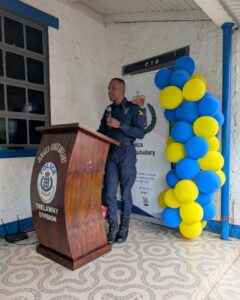A cleaner Palisadoes strip
IT was clean-up time again on the Palisadoes strip on September 16. Approximately 400 volunteers gave their time and energy to clean up the coastline at the entrance to our capital city.
As part of the International Coastal Clean-Up Day which takes place in over 70 countries around the world, the Palisadoes clean-up was organised by the Jamaica Environment Trust.
Volunteers who came from all around the corporate area included 30 schools and tertiary institutions, 16 business places and service clubs.
On arrival at the beach, volunteers were placed in teams and worked in the sun until midday collecting plastic bottles, caps and lids, food wrappers, glass tyres, metal, wood, cloth. Hundreds of garbage bags were filled and collected by Metropolitan Parks and Markets (MPM).
Venice Davis, marketing manager of Restaurants of Jamaica, saw the exercise as a very well-organised and worthwhile one. “It was really impressive to see the before and after effect of the work done by the volunteers. KFC is really happy to support this venture and would like to join JET and other NGO’s in appealing to each person to do his and her part in protecting the environment,” says Davis.
Aldane Maragh of the Student Environment Network (SEN), saw an improvement in the level of pollution on the strip. Last year there was a lot of tyres, dead fish and chicken. This year we found a lot of plastic bottles, diapers and pieces of plastic bags.” Maragh feels that there is much more work to be done.
“The pollution of the strip contributes to the pollution of the Kingston Harbour and the Student Environment Network is very concerned at the pace at which government is moving regarding the harbour’s rehabilitation,” said the SEN advisor.
Carlette Falloon, programme director of the Jamaica Environment Trust, was also pleased that there was some improvement on the Palisadoes strip as it was no longer being used as a large-scale illegal dump, but added that debris was still being washed into the Kingston Harbour through gullies and drains.
“I am really happy with the turnout and the assistance we got from private organisations and the police,” said Falloon. She reflected on the start of the Trust’s beach clean-ups in 1992 when there were 11 volunteers. “Our wish is that the event will have a multiplier effect that extends far beyond an annual day at the beach. We need to change the behaviour of our people, our industries, our ports and this will only happen if each person does his or her part,” cited the JET executive.
Volunteers used this clean-up day opportunity to sign over 200 “Save Kingston Harbour” advocacy cards to influence the government to pay immediate attention to the rehabilitation of the Kingston Harbour.












